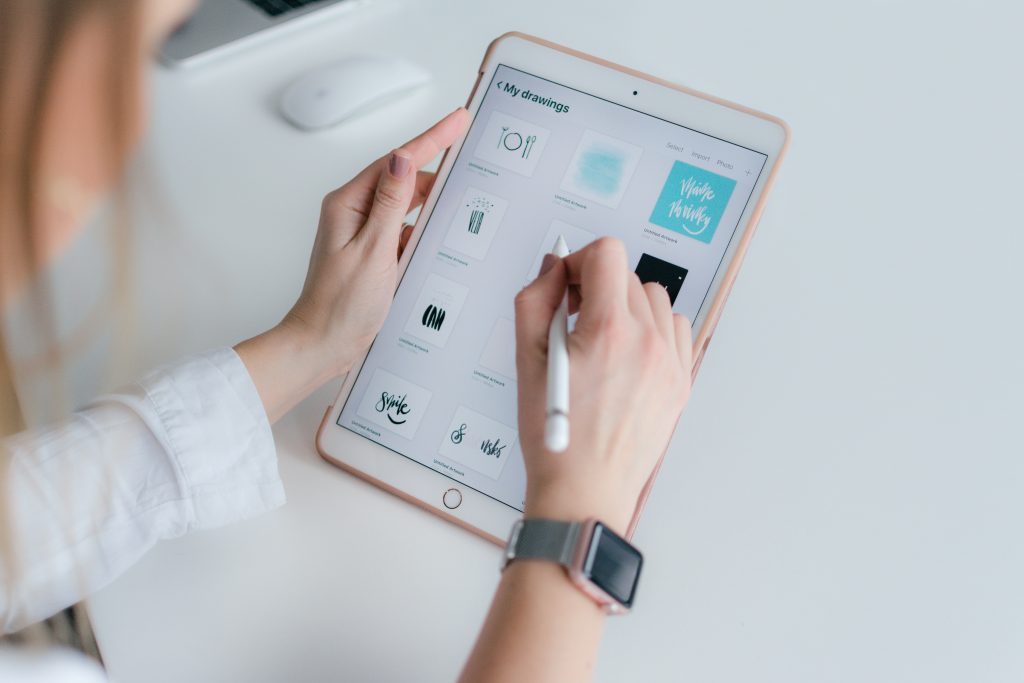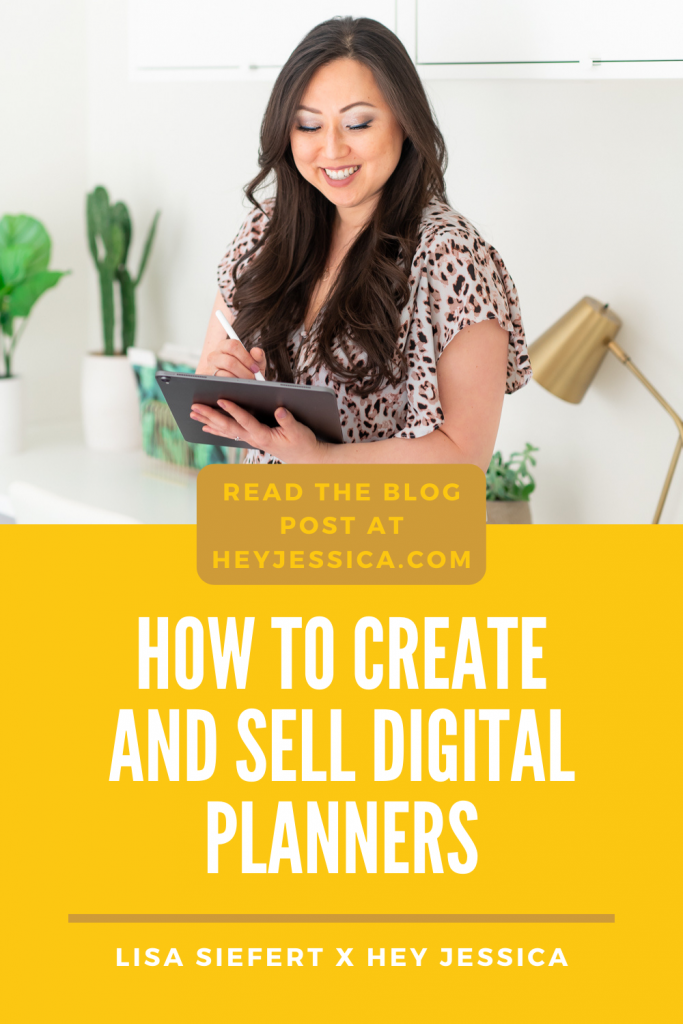The whole point of having an iPad is so you can ditch your physical notebooks, planners, books, etc. Am I right or amiright?! If you're looking to learn how to create and sell digital planners, you've got the right idea.
FUN FACT | Did you know that In the fourth quarter of 2020, iPad sales generated about 6.8 billion U.S. dollars in revenue, an increase of more than 2 billion U.S. dollars from the fourth quarter of 2019? Source: Statista October 2020
The good news is that Apple has done all the heavy lifting for you – they’re dominating the market for tablets and even if they weren’t, who cares? Your digital planner can be used on an Android or an Apple tablet. You’re device independent! But having more tablets in more hands helps because it increases your potential customer base.
How to Create and Sell Digital Planners

Get the Digital Product Blueprint
I’m going to give you an easy 4-step system to market and sell your future rock-star Digital Planner.
1 | To Date Or Not To Date
There are basically two and only two types of planners
- Dated Planners
- Undated Planners
Don’t get all wrapped up in the design, the layouts, the colors, the audience (Teacher Planners vs Fitness Planners), orientation (Vertical vs Horizontal), etc. Those are tiny, itty-bitty design details you can figure out later.
Your first step is simply to figure out whether you’re going to follow the calendar or wing it.
2 | Branding Matters
Before you flood the market or try to create all of your fabulous gazillion ideas, let’s go back to basics. The most successful Digital Planner Shops have a cohesive branding style.
What do I mean by this? It doesn’t mean that their entire inventory looks the same in terms of colors, fonts, layouts, etc. It means that one or a few different themes come shining through. It’s like when you look at a Picasso. You just know it when you see it.
So determine ahead of time if you’re luxurious, eclectic, funky, urban, flowery, shabby chic, etc and then choose an overall color palette to go with it. It doesn’t mean you’ll use that same palette every time, but if all of your planners are muted and understated shades of beige, then stick with it. If all your planners are bold, shocking colors, then stick with that.
The moral of the story is that unlike physical planners where people try to purchase ‘ONE TO RULE THEM ALL,’ Digital Planner people often buy tons of digital planners because they’re less expensive. It’s an easier no-brainer purchase and carrying extra digital planners won’t kill your shoulder.
3 | Design It
My personal tech design tool of choice is Adobe InDesign. It’s flexible, tailored to creating beautiful magazine layouts, perfect for typography art and easy to use when you’re creating digital planners.
However, there is a huge learning curve so don’t waste months trying to learn it. Just get out a piece of paper and a pen, write down what you want your planner to look like and outsource the design to someone else or use one of the easier tools like Canva, Keynote or Microsoft Word.
The moral of the story is technology issues should never be an obstacle to creating a business. Find a way around it.

4 | Market & Sell It
My favorite marketplace is Etsy.
Yes, there’s a lot of competition but there are also a lot of customers.
If you have an already built-in captive audience like Jess, then list it on your site. If not, then consider running some paid traffic to get them there.
Good luck!
+ show Comments
- Hide Comments
add a comment